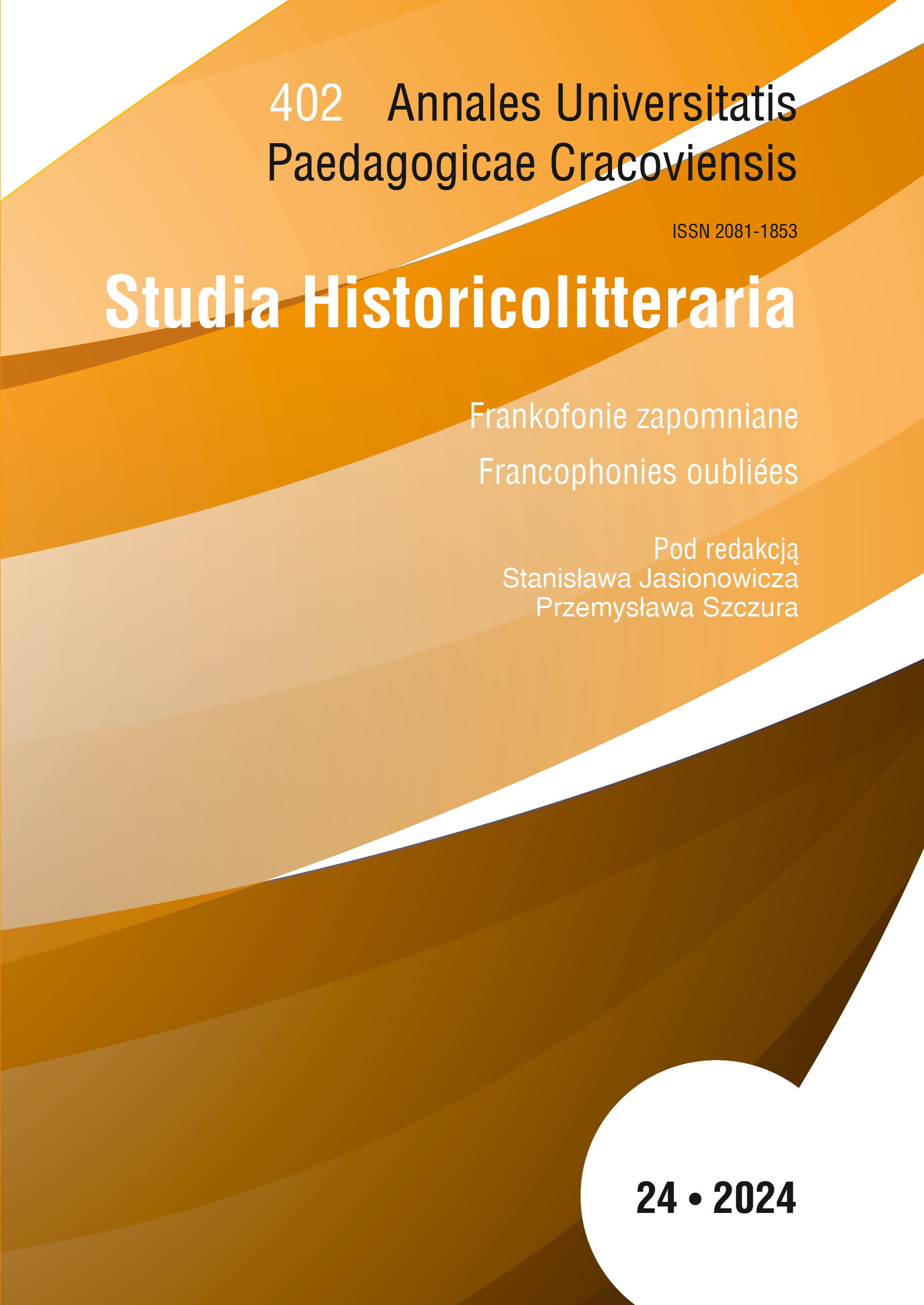Revendiquer en français la culture innue de Mashteuiatsh. L’autre récit sur la naissance de la confédération canadienne dans Kukum de Michel Jean
Main Article Content
Аннотация
The fiction that Michel Jean has been developing over the last ten years or so has sought to create breaches in the Canadian discourse, which has long idealized the birth of the country in a highly patriotic historiography. 'Kukum' can be seen as generating cracks in the founding narrative, which, all things considered, only held together because of a a general misunderstanding of the nature of the colonial act, which takes on a different meaning as soon as we focus on the indigenous question. Jean seeks to narrate the forgotten traumas of those who were forced to be civilized and bend to a way of life that was not their own. He tells the story of those who were forced to enter head-on, often over the course of a single generation,
into the progressive uniformity of the conquering peoples’ cultural hegemony. A paradox worth noting, which is commented on at length in this article, is that the tragedy of the Mashteuiatsh Innu recounted in 'Kukum' is not told in Innu-aimun, the language of Michel Jean’s ancestors, but in French, the language of the conquering colonizer. Michel Jean uses the language of the other to give form to the memory of his ancestors. While this can justifiably be seen as an undeniable sign of assimilation, it is indeed because of the mastery of this language that this tragedy suddenly becomes audible to the vast majority. Surprisingly, the use of French does not seem to conflict with Michel Jean’s literary project, which is to bring a greater degree of complexity to the story of Canada’s origins. The statues become unsettled, the pedestals erode, revealing in the light of day only unsuspected catastrophes, “horror stories” as the narrator of 'Kukum' relates.
Скачивания
Article Details

Это произведение доступно по лицензии Creative Commons «Attribution-NonCommercial-NoDerivatives» («Атрибуция — Некоммерческое использование — Без производных произведений») 4.0 Всемирная.
ПОЛИТИКА АВТОРСКИХ ПРАВ
Издатель «Annales Universitatis Paedagogicae Cracoviensis. Studia Historicolitteraria» имеет право использования и распространения всех опубликованных в издании материалов на основании договора неограниченной во времени неисключительной лицензии - предварительно заключенного на неоговоренное время с каждым автором конкретного произведения на оговоренных в том договоре условиях использования.
ПОЛИТИКА ОТКРЫТОГО ДОСТУПА
«Annales Universitatis Paedagogicae Cracoviensis. Studia Historicolitteraria» это издание с открытым доступом, а все его содержание доступно бесплатно для пользователей и организаций на основаниях неисключительной лицензии CreativeCommons (CC BY-NC-ND 4.0). Пользователи могут читать, скачивать, копировать, распространять, производить поиск или переходить по ссылкам к полным текстам статей в этом издании без предварительного согласия издателя либо автора при условии указания источника доступа и авторства данной публикации. Это согласуется с определением открытого доступа BOAI (http://www.soros.org/openaccess).
Библиографические ссылки
Arpin-Simonetti E., Décoloniser notre regard: table ronde avec Catherine Larochelle, Mélissa Mollen-Dupuis et Philippe Néméh-Nombré, « Relations » 2019, n° 802, p. 24–27.
Bradette M.-E., Langue française ou langue autochtone? Écriture etidentité culturelle dans les littératures des Premières Nations, « Captures » 2018, vol. 3, n° 1, http://revuecaptures.org/node/1514 (consulté le 2.08.2024).
Delâge D. et Warren J.-Ph., Le Piège de la Liberté. Les Peuples autochtones dans l’engrenage des régimes coloniaux, Montréal 2017.
Gatti M., Être écrivain amérindien au Québec. Indianité et création littéraire, Montréal 2006.
Gouvernement du Québec, « Innus », https://www.quebec.ca/gouvernement/portrait-quebec/premieres-nations-inuits/profil-des-nations/innus (consulté le 28.04.2024).
Gouvernement du Québec, « Population autochtone du Québec », https://www.quebec.ca/gouvernement/portrait-quebec/premieres-nations-inuits/profil-des-nations/populations-autochtones-du-quebec (consulté le 28.08.2024).
Jean M., Kukum, Montréal 2019.
Jean M., Le Vent en parle encore, Montréal, 2022.
Lapointe J., La magie d’Almanda, « La Presse », 24.12.2020, https://www.lapresse.ca/arts/litterature/2020–12–24/kukum-de-michel-jean/la-magie-d-almanda.php (consulté le 5.08.2024).
« La Revue des Lettres modernes », 2018, n° 10.
Lévesque C., Radu I. et Tran N., Revue de Littérature. Services Sociaux. Thème: les dépendances chez les Premières Nations et les Inuits, Montréal 2018.
Roussel J.-F., Rencontrer la spiritualité autochtone : une pratique de décolonisation, « Théologiques » 2018, vol. 26, n° 2, p. 99–124.
Sbarrato N., L’Éducation dans les communautés autochtones au Québec. Du système d’école résidentielles à l’espoir contemporain, « Globe » 2005, vol. 8, n° 2, p. 261–278.
Statistique Canada, « Les langues autochtones des Premières Nations, des Métis et des Inuits », https://www12.statcan.gc.ca/census-recensement/2016/as-sa/9200–x/2016022/98–200–x2016022–fra.cfm (consulté le 28.04.2024).
Statistique Canada, « La plupart des Autochtones vivent en Ontario et dans l’Ouest », https://www150.statcan.gc.ca/n1/daily-quotidien/220921/g-a001–fra.htm#shr-pg0 (consulté le 28.04.2024).
Statistique Canada. « Statistiques sur les peuples autochtones » : https://www.statcan.gc.ca/fr/sujets-debut/peuples_autochtones (consulté le 28.04.2024).
